
Kevadia, Gujarat | July 10- Union Education Minister Dharmendra Pradhan kickstarted the two-day Vice Chancellors’ Conference of Central Universities today at Kevadia, highlighting the government’s vision to accelerate the implementation of the National Education Policy (NEP) 2020 and build a roadmap for Viksit Bharat @2047. Over 50 Vice Chancellors from premier Central Universities are participating to assess, align, and amplify institutional transformation efforts.
Pradhan introduced the Panch Sankalp (Five Resolutions) as the new foundational pillars for NEP 2020 implementation:
He called upon universities to adopt these as their guiding principles and align them with the academic Triveni Sangamam — celebrating India’s civilizational strength, correcting present narratives, and preparing for a global leadership role in the future.
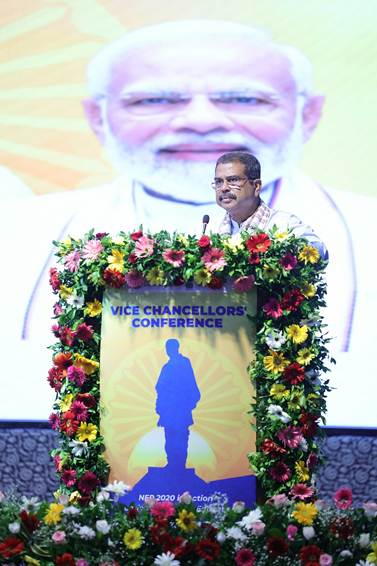
The Education Minister reiterated the ambitious goal to raise the Gross Enrollment Ratio (GER) in higher education to 50% by 2035, emphasizing the need for curriculum redesign, digital infrastructure, faculty development, and student-centric reforms. He underlined the “Students-First” approach, asserting that learners are the core strength of India’s future.
India’s higher education landscape has already witnessed remarkable growth:
In a significant move, Pradhan asked all Central Universities to prepare individual strategy papers for the full implementation of NEP 2020. Key focus areas include:
Dr. Hashmukh Adhia, Chancellor of Central University of Gujarat, emphasized the spiritual foundation of education, presenting six “Principles of Karmayoga” and underscoring the importance of Indian Knowledge Systems.
Dr. Vineet Joshi, Secretary, Higher Education, noted that five years since NEP 2020 was launched, it’s time to reflect on successes and recalibrate strategies for the future. He envisioned higher education institutions as “ecosystems of innovation, not just degree factories.”
Dr. Sunil Barnwal, Additional Secretary, highlighted the five foundational pillars of NEP 2020 — Access, Equity, Quality, Affordability, and Accountability — and stressed the need for collaborative leadership in higher education.
The conference features ten thematic sessions mapped to the NEP’s priorities, including:
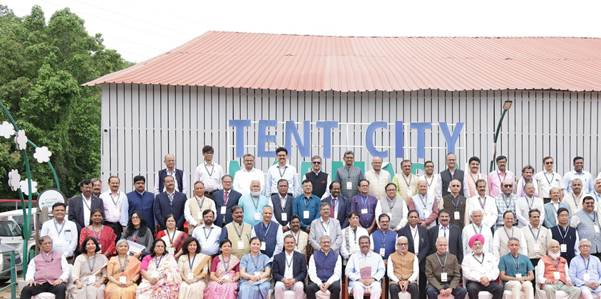
Top Central Universities such as JNU, Delhi University, Central University of Rajasthan, Central University of Haryana, Visva-Bharati, National Sanskrit University, and Indira Gandhi National Tribal University are actively participating, reflecting a pan-India commitment to NEP 2020 goals.
As India eyes its Amrit Kaal journey to 2047, the conference aims to catalyze actionable insights, foster academic collaboration, and strengthen the nation’s pursuit of becoming a global hub of knowledge, innovation, and ethical leadership





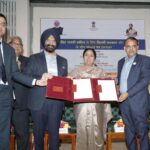

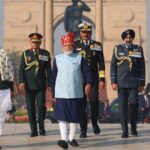








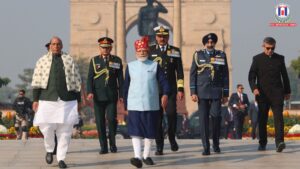


No Comments: